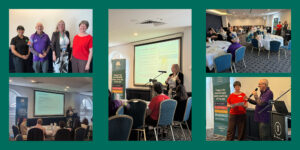Emotional resilience can be defined as the ability to bounce back from adversity, the ability to calm your mind during or after a negative situation. People who demonstrate a high degree of emotional resilience are able to cope with stresses (minor or major), in a calm and effective manner.
Much like other aspects of our persona like IQ, social intelligence and emotional intelligence – emotional resilience is something we are all born with and continues to develop as we grow. However, some of us are more resilient than others.
Thankfully, it’s a trait that can be further developed and learned with conscious practice and awareness. As carers, it would benefit us to develop our own emotional resilience.
Not sure what that looks like? No problem – all emotionally resilient people share the following eight traits. Have a read and see how you fare.
1. Emotional awareness
If you’re aware of how you’re feeling and why, then you are emotionally aware. You also have the ability to understand how others feel because your awareness.
2. Perseverance
Perseverance is never giving up in pursuit of your goals. People who have grit and persevere with achieving their objectives tend to be more resilient.
3. Independence
This trait of resilience is about having your own back, taking control of your destiny and knowing that you can overcome anything, no matter the situation.
4. Optimism
The ability to see the positive side of all situations is a quality shared by resilient people. Flipping a negative situation on its head and seeing the positive aspects puts you in a position of empowerment, opening up more options.
5. Support
Although resilient people are independent, they also understand the role that friends and family can play in supporting them through a difficult period. Resilient people are not afraid to reach out for support.
6. Sense of humour
Having a strong sense of humour can help people through difficult situations. Resilient people can laugh at the curveballs that life throws at them – they have the ability to see the lighter side of life.
7. Perspective
Resilient people know that life brings them lessons, and that learning from their mistakes is all part and parcel of the journey. They understand that adversity can make them stronger and instead of only viewing themselves as a victim, they recognise that they have some control.
8. Initiative
A resilient person displays initiative by taking control of the situation and putting strategies in place to overcome a particular challenge.
How did you go? Do you have some or all of these traits? If you’re a carer and would like to develop your emotional resilience, contact us for more information about our Bouncing Back – Building Resilience workshop. If you have any questions about this article or need someone to talk to, you can call Arafmi any time of the day on 07 3254 1881. It’s comforting to know that when you need to talk – someone who understands will be there – at any hour.



